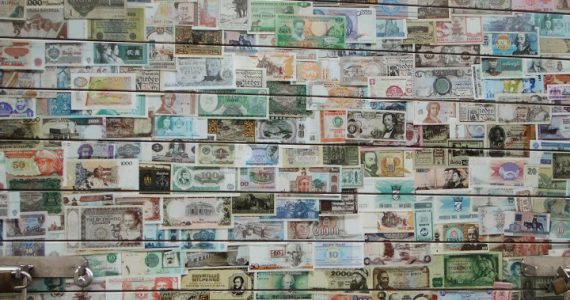
Nigeria and China: The Threat of a Debt Trap
Disclaimer: The views and opinions expressed in this article are those of the author and do not necessarily reflect the opinion of CISS or its members.
Introduction
Nigeria’s infrastructural development has benefited from China and this has been through aid and loans, which at present seem like a charity donation. But through history, no country has appeared to be a Father Christmas to others. Thus, some scholars started to call this occurrence “debt-trap diplomacy”.
China’s Loans to Nigeria
China is not only active in Nigeria but currently constitutes the largest overseas trade partner and also one of the largest creditors in many African countries. All through the continent, Beijing presents loans to nations for railways, stadiums and other foremost infrastructure initiatives. The table below shows the volume of loans offered to Nigeria by China.
Sum of Nigeria’s Annual Loan Value by Year, 2000 -2017, in millions of dollars
| 2000 | 0 |
| 2001 | 0 |
| 2002 | 390 |
| 2003 | 0 |
| 2004 | 0 |
| 2005 | 0 |
| 2006 | 200 |
| 2007 | 0 |
| 2008 | 0 |
| 2009 | 0 |
| 2010 | 400 |
| 2011 | 0 |
| 2012 | 600 |
| 2013 | 1475 |
| 2014 | 500 |
| 2015 | 0 |
| 2016 | 0 |
| 2017 | 1267 |
| Sum | 4831.42 |
Source: Johns Hopkins school of advanced studies. China-Africa Research Initiative. Accessed on 31/12/2019 from: http://www.sais-cari.org/data-chinese-loans-to-africa
The above raises some questions: Does China love Nigerians? Is China a nation without domestic issues that would require the lent money? These questions arise because international politics is a game played with every country’s national interest at heart. Every nation carries out its foreign policy according to its needs. Foreign policy is the reflection of any nation’s domestic reality, it begins with the identification and articulation of national interests. Thus, foreign policy is inseparable from national interest and it is a product of domestic political decision-making, which in turn, is a product of a country’s national interest (Obiozor, 1992, P.1-40).
Therefore, it is pertinent to keep in mind that no nation has ever carried out a foreign policy without its national interest in mind. Thus, Chinese loans to Africa can be considered as an extension of China’s foreign policy in Africa. And the loans could be detrimental to the loan recipient African countries.
Under the leadership of Harvard professor Carmen Reinhart, a German-American team of academics dug through material and compiled a comprehensive analysis about Chinese foreign loans. The resulting picture does not do anything to assuage worries about the economic strength being exerted by Beijing. The information shows that China’s loans often include conditionalities which are strongly orientated towards Beijing’s strategic interests and increase the risk that many countries in the developing plunge into a monetary disaster (Von Bartholomäus et al,2019, P.1-80).
Some experts claim that China is present in Africa for the sake of China. China claims to be there for Africans. One thing is certain: China has an immense impact on Africa’s growth and economic development. And there is no change in sight. Though it seems like a lot of the current debt of most African countries is not going to be profitable to China and China is keen on helping Africa, these loans allow China to take control over certain projects once the credit conditions are not met by the borrowing county. This tactic is known as “debt-trap diplomacy” and has been used by China in numerous instances. One example is Sri Lanka. When the debt burden had become unsustainable in 2017, the authorities in Sri Lanka were pressured to transfer the majority control of the port of Hambantota as a replacement for the pending repayment. The port was passed over to Beijing for 99 years (Yasar, 2019.P1).
China’s Loan Trap Under the Present Nigerian Government
In 2018, Reuters reported that China’s Exim bank would lend Nigeria $328 million to enhance the west African countries’ telecoms infrastructure (Reuters, 2018.P.1). At the round table assembly of the forum on China-Africa cooperation (FOCAC) in Beijing, attended by African leaders and Chinese President Xi Jinping, Nigerian’s President Muhammadu Buhari stated that Nigeria’s partnership with China has resulted in the execution of important infrastructure initiatives throughout the country, which have totaled to over $5 billion in the past 3 years. He further stated that initiatives under FOCAC, and with Chinese assistance, Nigeria has addressed big demanding situations within the areas of infrastructure, human capability development, power, shipping, agriculture and humanitarian assistance (Chijioke, 2018.P.1). He named several successfully executed as well as upcoming projects such as the construction of the first urban rail system in West Africa, the upgrading of airport terminals, a hydroelectric power project, fiber cables for internet infrastructure, road rehabilitation, and water supply projects” (Chijioke, 2018.P.1).
President Buhari said that the aforementioned projects had confirmed the great degree of consistency and dedication that China has proven and that it is boosting its relations with African nations under the umbrella of FOCAC. Therefore, he claimed that: “Nigeria will continue to support the FOCAC initiative and also seek to key into the Belt and Road Initiative as an additional Chinese mechanism to build further cooperation in our quest for infrastructural and economic development. These vital infrastructure projects synchronize perfectly with our Economic Recovery and Growth Plan, and some of the debts incurred are self-liquidating” (Chijioke Jannah, 2018.P.1).
His comment seems to praise China’s imperialism in Africa, even though, many indebted nations and scholars of economics and international relations have criticized Chinese activities in Africa. The uncritical views can be interpreted as the immediate effect of the loans lacking the consideration of future implications possibly leading to the loss of sovereignty.
Conclusion
It is pertinent to note that, right from time immemorial, no nation has carried out a foreign policy without national interests in mind. All nations focus on either current or future national interest. Thus, Chinese loans to Nigeria have to be considered as a part of China’s foreign policy execution and might become detrimental for the country.
The debt issue can be solved by capacity building and capability strengthening in areas such as debt and risk management, financial management, research, and technology know-how. There should be investments in educational institutions, including universities, think tanks, and governmental institutions. Robust cooperation among African countries and its partners on technical assistance and capacity building will be crucial. As African monetary systems are more and more integrated into the global financial system, it is in the interest of the global community to develop and foster the risk management and regulatory capacities of Africa courtiers.
Reference
- Chijioke. J. (2018). What Nigeria Did with $5b Chinese Loan Under My Govt – Buhari. Accessed on 31/12/2019 from: https://dailypost.ng/2018/09/05/nigeria-5b-chinese-loan-govt-buhari/
- George A. O. (1992) uneasy friendship. Nigeria/ us relations. Fourth dimension, Enugu,
- Johns Hopkins school of advanced studies. (2019), China-Africa Research Initiative. Accessed on 31/12/2019 from: http://www.sais-cari.org/data-chinese-loans-to-africa
- Yasar, A. A. (2019), Is ‘Debt Trap Diplomacy’ China’s Neocolonialist Tool in Africa? Accessed on 31/12/2019 from: https://www.trtworld.com/africa/is-debt-trap-diplomacy-china-s-neocolonialist-tool-in-africa-27672
- Von Bartholomäus. G , S. and Bernhard Z. (2019), Chinese Loans Pose Risks to Developing World. Der Spiegel. Sourced on 05/05/2019 from: https://www.spiegel.de/international/business/chinese-loans-pose-risks-to-developing-world-a-1275643.html

Unekwu Friday Itodo
Unekwu Friday Itodo is a PhD student at the History and International Studies Department at the Kogi State University in Nigeria.
